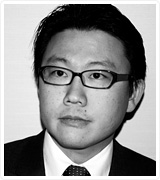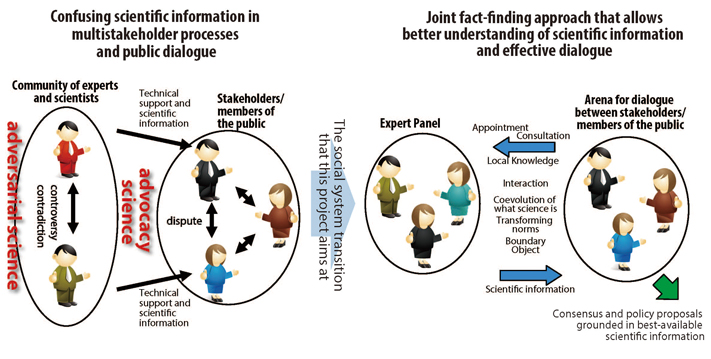R&D Projects
Integrating Joint Fact-Finding into Policy-Making Processes (IJFF)
Project Director

- MATSUURA Masahiro
Graduate School of Public Policy, The University of Tokyo
<Project Homepage>
Integrating Joint Fact-Finding into Policy-Making Processes (IJFF)
Objective
- In many science-intensive policy disputes, each stakeholder group disseminates a particular kind of scientific information in order to promote its position. This tendency becomes a formidable challenge to any effort that seeks consensus among these stakeholder groups.
- The overall goal of our project is to restructure the relationship between scientific experts and stakeholders in policy-making processes so that policies can be grounded in scientific information that all stakeholders trust.
- Toward this goal, this project is exploring the concept and method of joint fact-finding processes that identify scientific information through collaboration between stakeholders and scientific experts.
- This project engages in action research on energy policy, food safety, and marine spatial planning. Following the field research, we will promote the use of joint fact-finding in different parts of the world by providing necessary institutional support and deployment strategies.
Outline
The project consists of the following four sub-areas:
- Area 1: Joint fact-finding (JFF) as a practical method
- We will develop an international network of researchers for collaboration (particularly in North America and Asia). We will articulate principles of JFF that can be useful in any part of the world, as well as model JFF processes tailored to the Japanese context.
Area 2: Institutions and meta-strategy- We will explore the appropriate institutional arrangements (e.g., legal systems and capacity building) necessary for adopting the JFF approach in STI policy-making. We will also consider transition management approaches toward institutionalizing a new system that adopts the JFF approach. Within this project, we will promote institutionalization so that continued efforts can be made after the three-year period.
Area 3: Action research- We will conduct three case studies on the following three themes:
Theme 1: Energy policy (Long-term wood biomass usage strategy on Tsushima Island, Nagasaki)
Theme 2: Food safety (health effects of radiation in food)
Theme 3: Marine spatial planning (local planning efforts in Hinase, Okayama)
We will adopt the action research approach that draws lessons by reflecting on involvement and observations from case studies.
Area 4: Networking and outreaching- We will publish periodical newsletters, organize international symposiums, and hold international workshops using teleconferencing systems.





